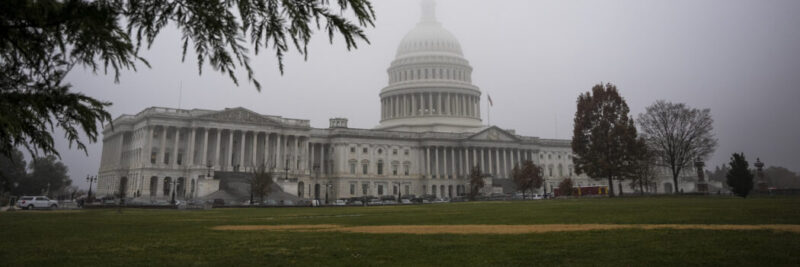Op-Ed Receives A Lot of Raised Eyebrows
In a striking opinion piece published by Politico on Sunday, Max Stier, a former attorney for Bill Clinton and known accuser of Supreme Court Justice Brett Kavanaugh, issued an impassioned plea to federal employees: Don’t quit your jobs under the incoming Trump administration.
The op-ed, boldly titled “Dear Federal Workers: Don’t Quit,” presents a dramatic call to arms, framing the next administration not as a typical political transition, but as a looming existential crisis for the federal bureaucracy itself.
Stier, who currently serves as president and CEO of the Partnership for Public Service, a nonprofit focused on the federal civil service, paints a dire picture of what’s to come. In his view, President-elect Donald Trump’s anticipated reforms and possible restructuring of federal agencies represent a direct threat to the careers and influence of unelected federal workers.
"Over the next few weeks, U.S. civil servants will spend the holidays wrestling with a tough choice: Stay in your jobs and work for a president who openly disdains you and might try to fire you — or quit," Stier writes. He admits he’s already been hearing whispers of retreat from many corners of the federal workforce—career bureaucrats considering an exit rather than enduring what they anticipate will be an administration hostile to their interests.
But Stier isn’t just sounding the alarm—he’s pleading. “I am asking you — pleading with you: stay. Your decision isn’t just about your career, or a single president. It’s part of a larger war, one waged throughout American history, over what the federal government can and should be.”
The piece is both a rallying cry and a cautionary tale. Stier warns that if federal employees jump ship en masse, it will leave critical positions unfilled and could, in his view, weaken the very foundation of the government’s ability to function effectively.
However, beneath Stier’s emotional appeal lies a sharp ideological undercurrent. His reference to Trump’s purported “purge” of federal workers hints at a broader concern among Washington’s entrenched bureaucratic class: the loss of institutional power and influence. Trump’s previous term was marked by efforts to make federal agencies more accountable to elected leadership and, in some cases, reduce their scope and power.
Stier’s characterization of federal workers as “the lifeblood of our democracy” reveals the heart of his argument. To him, the administrative state isn’t just a mechanism of governance—it’s a vital pillar of the American system. And while there’s no denying the importance of a functional federal workforce, his rhetoric may strike some as an overstatement, especially in a nation where power ostensibly flows from elected officials, not career bureaucrats.
It’s also worth noting that Stier is no stranger to political controversy. His previous allegations against Supreme Court Justice Brett Kavanaugh during the justice’s confirmation hearings added fuel to an already raging political fire. Yet those claims—while widely publicized—were never substantiated by the Senate Judiciary Committee or the FBI.


